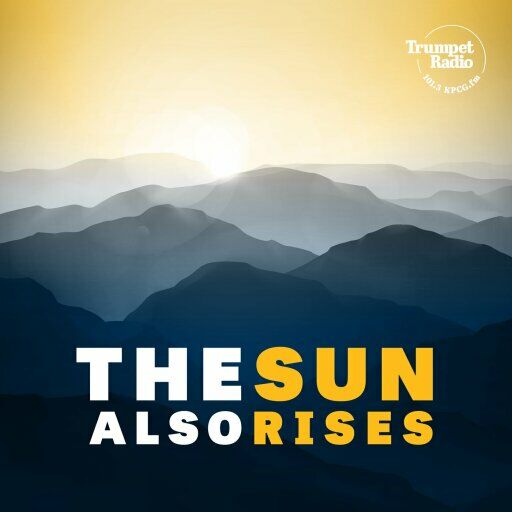
The Sun Also Rises
The news keeps getting darker. The world seems to keep getting bleaker. But Solomon wrote, “the sun also ariseth.” The Sun Also Rises transmits the true, the bright and the beautiful, glints of light in a world going black. Each week, host Jeremiah Jacques brings you stories of refreshing accomplishment, intriguing science and inspiring lives—glimmers of hope that hint at a better world to come.
Look For the Helpers
Today’s episode focuses on individuals and organizations that help people who are in need in remarkable ways. They take notice of others who are not doing well, and who are in over their heads, struggling and sinking deeper—and they reach out and give them a hand. From Paraguay to Australia to the United States, this episode looks for the helpers.
Calum’s Road
Calum MacLeod lived on the North side of the small, rocky island of Raasay, Scotland—miles away from the nearest road. One night his 12-year-old daughter became stuck in a blizzard as she was trying to walk up to their isolated settlement from the roads on the south of the island. Calum rescued her, but was furious and petitioned the government to build a road. The far-off bureaucracies refused. So Calum decided to conquer the unforgiving landscape, and build the road himself. What followed was an astounding testament to one man’s determination.
Why the Fascination with Superheroes?
What is it about superhero stories that makes people want to put on a brightly-colored leotard, and yell “Flame on!”? This episode shows that the fascination with superhero-type figures is not a new phenomenon. It has left a herculean footprint on just about every culture that has come and gone for thousands of years. We love these stories because people through the ages have wished to break free from the limits of our finite human existence. But could there be something more behind this fascination?
Free at Last, Free at Last!
If you were among the few North Koreans who break free, and who escape the country, what would your next move be? Most escapees choose to settle into a new life in a new country, and they try to forget the nightmare they left behind. But other escapees do something more noble, and more giving. Their example provides us with a powerful analogy.
It’s a Bird. It’s a Plane. It’s… Librarian Heroes!
This episode tells riveting true stories about a category of heroes that don’t generally make their way into the headlines. Whether the enemy is Al-Qaeda or the vast expanse of the Gobi desert, theses librarian heroes prevail.
Of Turtles and Teenagers
Young, older, oldest. We begin this episode with a story from the early childhood of host Jeremiah Jacques, in which a turtle assistance situation turns potentially tragic. From there, we discuss the teenage brain, and what the latest neuroscience has discovered about its weaknesses and strengths. Finally, there is some encouragement for people of all ages.
Sugihara’s Stand
When the Nazis began massacring European Jews, an unlikely man defied his government in order to save as many of them as possible: Chiune Sugihara, the Japanese diplomat stationed in Eastern Europe. Mr. Sugihara’s bravery and altruism ended up saving the life of some 6,000 people. One of those was a 7-year-old boy who grew up to become Mr. Leo Melamed. Today, Mr. Melamed is regarded as the most important financial innovator in the second half of the 20th century. But none of his remarkable accomplishments would have been possible had it not been for the courage of Sugihara. In this episode, Mr. Melamed tells The Sun Also Rises his astounding story—the story of Sugihara’s stand.
Proverbs from Around the World
An ancient German proverb says, “A country can be judged by the quality of its proverbs.” This episode puts that to the test. Host Jeremiah Jacques speaks with proverb-loving guests from three different nations in order to get a glimpse into the ancient wisdom of their countries of origin. Some of them may seem strange, but, as the old Welsh proverb states: “The common sayings of the multitude are too true to be laughed at.”
How to Teach a Man Who Has No Words
For the first 27 years of his life, Ildefonso lived in isolation. No, he wasn’t locked in solitary confinement or stranded on a desert island. He was born totally deaf and never even learned that there was such a thing as language. He didn’t even know that sound existed. In this episode, we speak with Susan Schaller, whose patience, perseverance and resourcefulness freed Ildefonso from his dark and incomprehensible prison.
Three Coffins Made of Lead
The Chernobyl nuclear disaster of 1986 could have been hundreds of times worse if it had not been for the astounding sacrifice of three men. This episode tells their story. It also features an original poem by award-winning poet David Brandon, titled “The Chernobyl Three.”